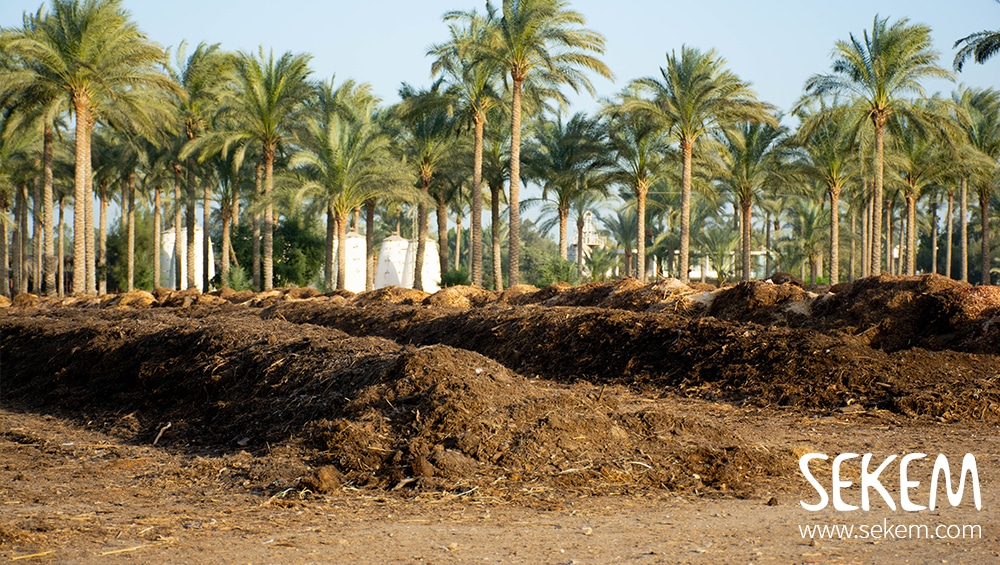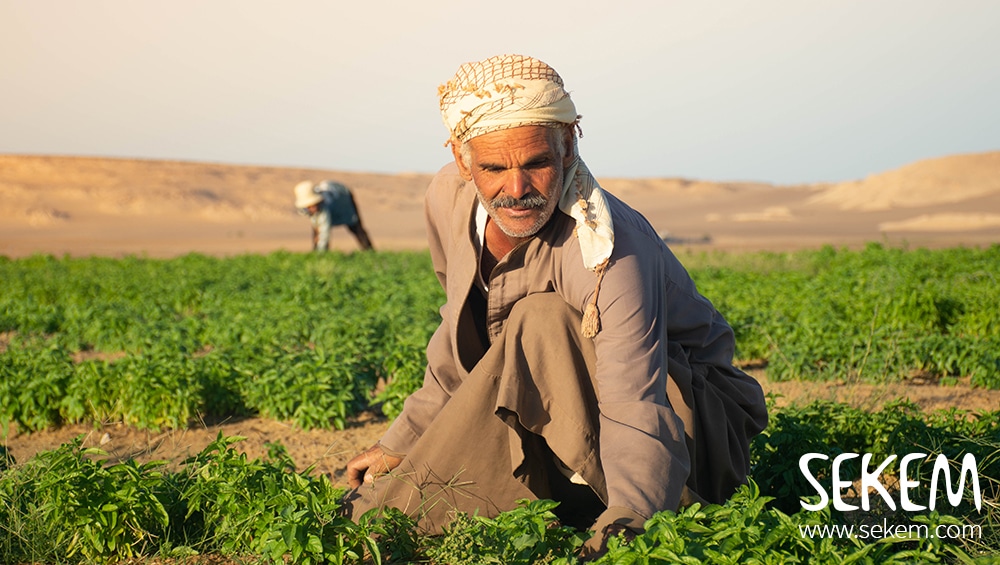In November, the UN Climate Change Conference (COP 27) will take place in Sharm El-Sheikh, Egypt. In this context, for sure SEKEM will actively advocate for climate protection. Hence, SEKEM and Heliopolis University have drafted a concept paper outlining how agriculture can make a significant contribution to combating climate change. In this paper, SEKEM presents a concrete model of how thousands of organic farmers can protect climate and be rewarded accordingly. This model not only shows great potential for Egypt to promote organic agriculture and thus save CO2, but also holds enormous opportunities for the international organic sector and the achievement of climate goals worldwide.
Sustainable Agriculture saves CO2
Over 40 years of sustainable agriculture under challenging conditions in a desert country like Egypt have shown that it can make an important contribution to reducing carbon emissions, namely by sequestering CO2 in the soil, reforestation, recycling organic waste as compost, and using other organic fertilizers as well as renewable energies. Taking all these indicators into account, it can be calculated that at least 27 tons of carbon dioxide equivalent (CO2e) can be sequestered from the air per hectare and year.
Agricultural Carbon Credits – For the farmers` services to our environment
As a first step, SEKEM would like to ensure that the thousands of farmers who have been practicing organic agriculture in Egypt for many years are paid for their service to the environment. They should be able to find a purchase on the rapidly growing CO2 market for CO2 equivalents that SEKEM calls Agricultural Carbon Credits. This will enable them to generate additional income that is commensurate with their contribution to mitigating climate change. In the second step, farmers cultivating former desert land are to convert to organic methods and be included in the compensation system, before the so-called “old lands” in the Nile Delta can then also qualify for Agricultural Carbon Credits in the final step. Already in the first phase, which involves the certification of around 110,000 hectares of organic land, certificates with the value of around 3 million tons of CO2 would be generated.

In the concept paper, SEKEM presents its own Wahat Farm in the western desert of Egypt as a prototype for the Agricultural Carbon Credits model. Here, on more than 330 hectares, nearly 12,000 tons of CO2 are sequestered per year through biodynamic soil management, tree planting and the use of compost. This is equivalent to the CO2 emissions of over 4,500 Egyptians. If this model were applied to all of Egypt’s agriculture, a total of 100 million tons of CO2 would be sequestered, which is currently half of Egypt’s total CO2 emissions. On this basis, SEKEM calls for action. At this year’s COP27 negotiations, the access of these Agricultural Carbon Credits into the conventional emission certificate trade shall be propagated.
Climate protector instead of CO2 polluter
For the certification and issuance of the Agricultural Carbon Credits, the Economy of Love standard has already developed and tested the necessary concept. The basis for this is the Clean Development Mechanism as defined by the United Nations Framework Convention on Climate Change (UNFCCC).
Agriculture worldwide, which is responsible for almost 24 percent of total greenhouse gas emissions, could thus soon not only become CO2-neutral, but even contribute significantly to saving carbon emissions. SEKEM sees enormous potential in trading with Agricultural Carbon Credits to achieve the climate targets of the Paris Agreement and is also cooperating with the Egyptian Ministry of Agriculture to this end. Together, the national framework for reducing emissions is to be created – so that more farmers can be climate protectors instead of CO2 polluters.
Read the complete concept paper here!
Read more on how agriculture can save our climate

